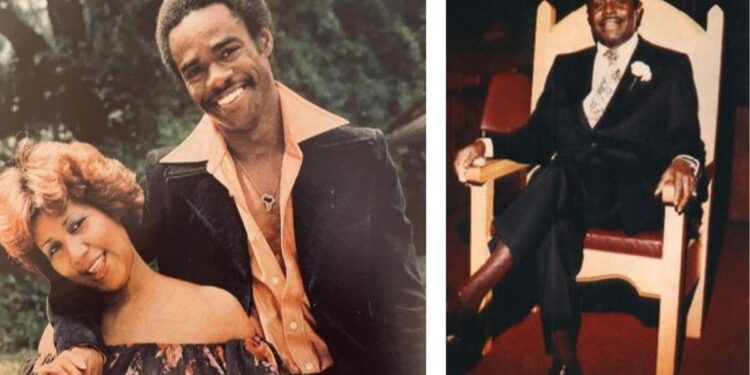In the annals of American civil rights history, towering figures like Martin Luther King Jr., Malcolm X, and Rosa Parks often dominate public awareness. Yet, behind the scenes and beyond the headlines lie untold stories of individuals who shaped the social landscape in quieter, subtler ways. One such individual is Carl Ellan Kelley, a woman whose name may not command national recognition but is deeply interwoven with one of the most significant legacies in Black American history. She is widely believed to be the daughter of Adam Clayton Powell Jr., a dynamic and controversial political leader of the 20th century. This article delves into her life story, historical relevance, and the unique complexities of her identity.
Quick Bio
| Attribute | Details |
| Full Name | Carl Ellan Kelley |
| Date of Birth | November 17, 1940 |
| Date of Death | January 30, 2019 |
| Parents | Mildred Jennings (Mother), Rev. C.L. Franklin (Father) |
| Half-Sister | Aretha Franklin |
| Siblings | Vaughn Franklin (Brother), 3 other siblings |
| Profession | Private individual, lesser-known public figure |
| Known For | Being the half-sister of Aretha Franklin |
| Place of Birth | Detroit, Michigan, USA |
| Nationality | American |
The Powerful Legacy of Adam Clayton Powell Jr.
To understand Carl Ellan Kelley’s significance, one must first understand the immense influence of her father, Adam Clayton Powell Jr. Born in 1908, Powell was a charismatic preacher at Harlem’s Abyssinian Baptist Church and one of the first African Americans elected to Congress from New York. Serving nearly three decades in the U.S. House of Representatives, Powell became a fierce advocate for civil rights legislation, social reform, and racial equality. He was a bold, unapologetic orator who often clashed with political adversaries, black and white alike. His name was synonymous with Black political power during the mid-20th century.
However, Powell’s life outside politics was complex, filled with controversies, romantic entanglements, and personal choices that left lasting consequences. One of those consequences, quietly living in the background, was Carl Ellan Kelley—his alleged daughter, born from a secret relationship before his political fame fully blossomed.
Carl Ellan Kelley’s Birth and Early Life
Carl Ellan Kelley was born in 1929, during an era marked by strict racial boundaries and social segregation. Her birth, as the daughter of a Black father and a white mother, posed significant societal challenges. Interracial relationships, especially those that resulted in children, were deeply stigmatized and, in many states, even illegal due to anti-miscegenation laws. While not much is publicly documented about her upbringing, it’s understood that her existence was largely kept private, perhaps even hidden intentionally to protect both her and her father’s reputation.
In the racially tense climate of early 20th-century America, children of mixed heritage often faced a conflicted identity. For Carl Ellan Kelley, growing up as the child of two worlds meant navigating both internal questions and external prejudice. The lack of public acknowledgment by Powell Jr. likely added another layer of emotional complexity.
A Life in the Shadows of Public Fame
Unlike her father, Carl Ellan Kelley never entered the public eye, never courted media attention, and did not actively engage in civil rights or political activism. This silence, however, should not be mistaken for insignificance. Many individuals who exist on the margins of famous lineages often carry their own burdens—emotional, historical, and social. Kelley’s life appears to have been one of discretion, and that discretion may have been both a choice and a necessity.
Living in the shadow of a prominent figure like Adam Clayton Powell Jr. could be both a privilege and a curse. On one hand, her father’s accomplishments opened the door to a new narrative of Black empowerment. On the other hand, her likely status as his unacknowledged child created a lifelong invisibility. Kelley may have grown up knowing who she was and where she came from, yet the lack of recognition would have shaped her personal identity profoundly.
The Complex Identity of a Biracial Woman in Mid-20th Century America
Being biracial in the early and mid-1900s was extraordinarily complicated. Society insisted on categorizing people by the “one-drop rule,” meaning even a small percentage of African heritage could place someone in the “Black” category legally and socially. For Carl Ellan Kelley, born of a Black father and white mother, this rigid racial binary could have resulted in profound alienation from both communities.
Social acceptance was often elusive. Within white communities, biracial individuals were commonly excluded or treated as second-class citizens. Within Black communities, biracial people sometimes faced suspicion or were labeled as “not Black enough.” Kelley likely had to navigate these minefields quietly, especially if she lived in areas where interracial heritage was socially taboo or legally forbidden.
The Historical Erasure of Women Like Carl Ellan Kelley
One of the reasons so little is known about Carl Ellan Kelley is that history tends to overlook individuals who don’t command public platforms, particularly women of color. This trend is even more pronounced when those women fall outside the bounds of traditional family structures. Kelley was never a celebrity, never a political figure, and never courted attention—but that doesn’t diminish her importance.
Her erasure from historical records is emblematic of a broader societal pattern: the neglect of private women’s stories in favor of more visible, male-driven narratives. And yet, stories like hers are essential. They challenge the myths of perfect heroes and remind us of the deeply human, sometimes messy realities behind public personas.
The Cultural and Emotional Weight of Silence
Silence is not always accidental. In many cases, silence is protective, chosen, or even enforced. Carl Ellan Kelley’s life seems to be enveloped in deliberate quiet—possibly out of personal desire, possibly due to societal pressures, or possibly as a result of being born into circumstances that didn’t allow for open acknowledgment. For a woman in her position, speaking out might have meant social risk, family rupture, or personal pain.
Emotional weight comes with being the unspoken chapter in someone else’s history. It’s likely that Kelley lived with the knowledge of her lineage but without the public support, validation, or acknowledgment that could have helped reconcile that reality. Her silence was not emptiness—it was heavy with history.
The Symbolism of Carl Ellan Kelley’s Life Today
In modern times, interest in ancestry, identity, and personal history has grown exponentially. DNA testing services, historical research, and digital genealogy have opened doors that were once sealed. As people explore their roots, stories like Carl Ellan Kelley’s become more relevant than ever. Her life represents the many Americans with complicated heritages and untold family histories.
She is symbolic of the hidden layers of Black history—layers often obscured by time, pride, pain, or shame. Her story invites us to look beyond the public record and consider the lives that existed in parallel, often unacknowledged but never irrelevant.
Why Her Story Matters in 21st-Century Conversations
In a time when discussions about race, identity, and family lineage are becoming more nuanced, the story of Carl Ellan Kelley is more than just a footnote. It is a window into how America has historically handled mixed-race children, illegitimate births, and gendered silence. Her story encourages us to broaden our understanding of what legacy means. It’s not just about achievements and accolades—it’s about how people live, adapt, and survive in the margins of celebrated legacies.
Kelley’s life reminds us that behind every iconic figure is a network of lesser-known lives shaped by proximity to power and influence. In retelling and reclaiming her narrative, we make room for fuller, more honest histories.
A Call for More Inclusive Histories
The story of Carl Ellan Kelley is a call to action for historians, writers, and the public alike: we must do better in preserving and honoring lives that don’t fit traditional molds. Public figures often cast large shadows, but we cannot afford to ignore the people who live within those shadows. Their stories offer critical insights into the human experience, particularly at the intersection of race, gender, and identity.
Kelley’s quiet existence should not be a reason for her to be forgotten. Instead, it should inspire us to seek out and tell more stories like hers—stories that help bridge the gap between public legacy and private truth.
Conclusion: A Legacy Worth Remembering
Though she may not be known to the masses, Carl Ellan Kelley represents something deeply meaningful: the hidden truths that lie beneath the surface of public history. Her life, while not extensively documented, speaks volumes about the complexity of race, the invisibility of certain women in history, and the weight of being part of a lineage that did not fully embrace her publicly.
As more people turn to the past to understand their roots, stories like Kelley’s offer powerful reminders that history is not just made by those who speak the loudest. It is also made in the silence of those who lived bravely, quietly, and meaningfully.
Frequently Asked Questions About Carl Ellan Kelley
1. Who was Carl Ellan Kelley?
- Carl Ellan Kelley is believed to be the biological daughter of Adam Clayton Powell Jr., a major figure in the American civil rights movement. Her life remained largely private and undocumented.
2. Was Carl Ellan Kelley involved in civil rights activism like her father?
- There is no public record of her being involved in political or civil rights activism. She lived a private life away from the spotlight.
3. Why isn’t there more information about her?
- Much of her life was kept out of public view, likely due to the circumstances of her birth and the social taboos of the time regarding interracial relationships and illegitimacy.
4. Is there any documentation that proves she was Adam Clayton Powell Jr.’s daughter?
- There are strong beliefs and some genealogical traces that point to this connection, but there is no widely known or publicly released legal confirmation.
5. What can we learn from Carl Ellan Kelley’s story?
- Her story teaches us about the personal costs of public legacy, the societal silence surrounding women like her, and the need to preserve hidden histories.

















